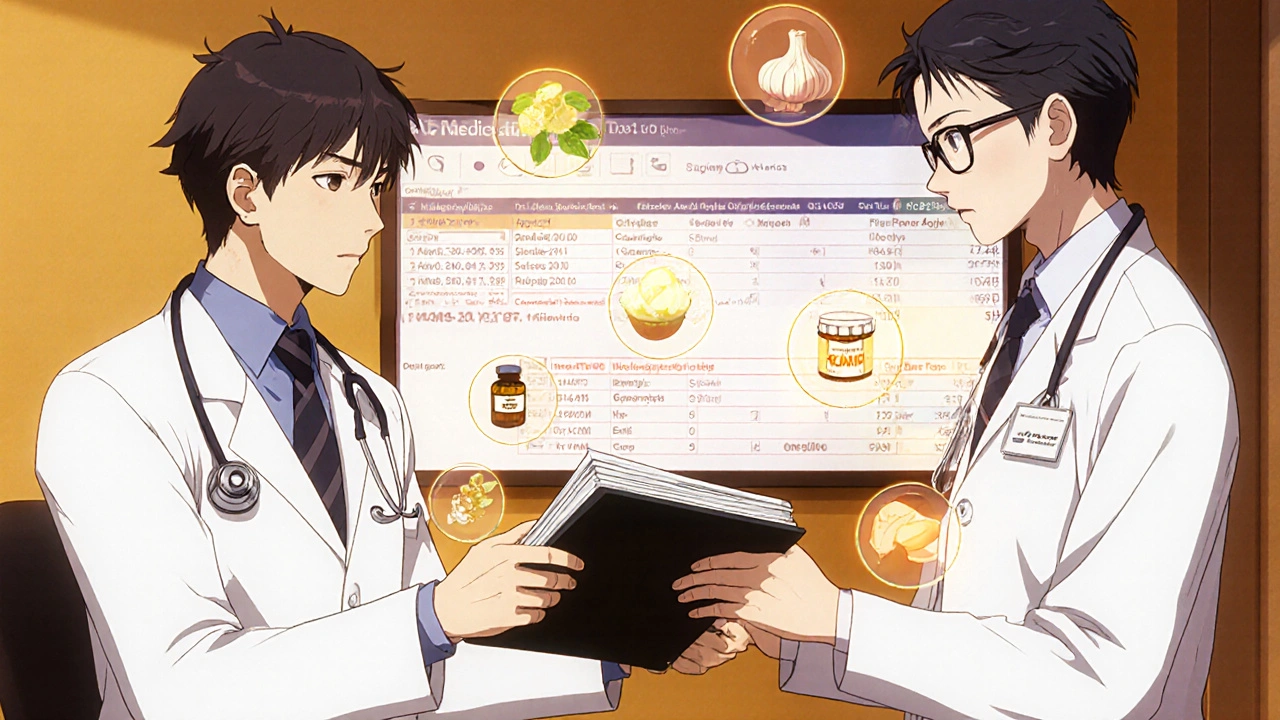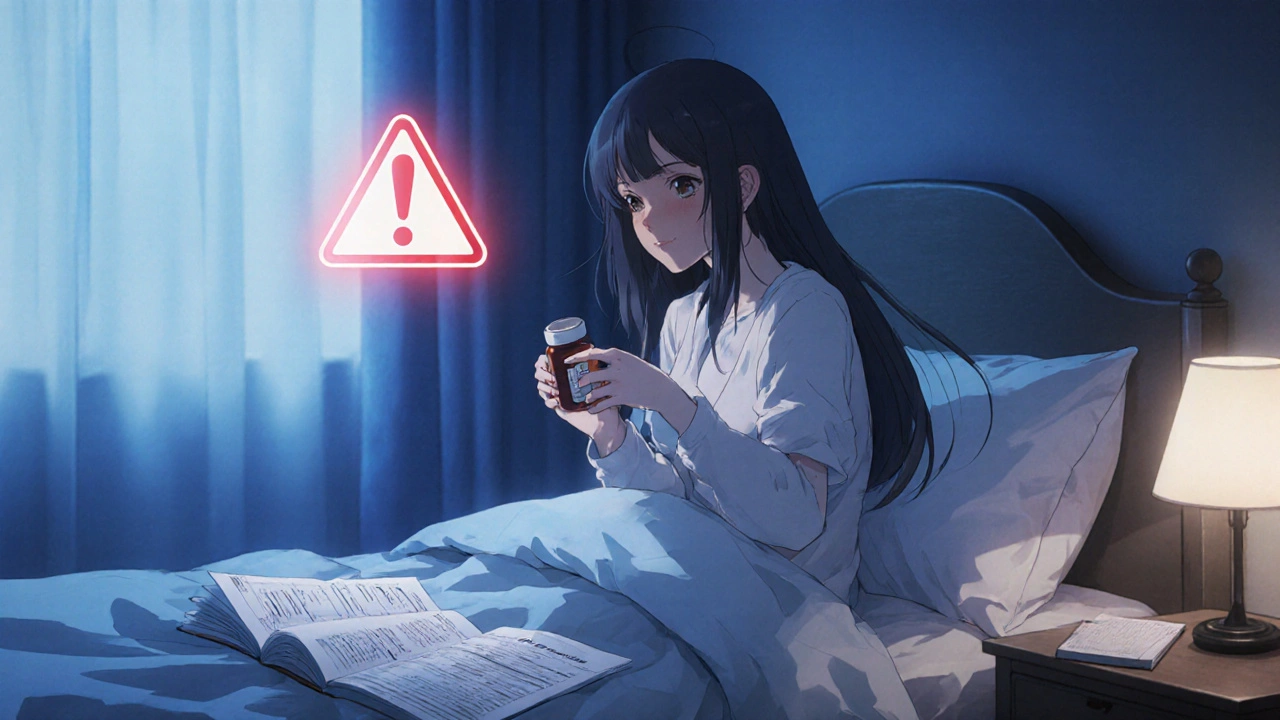Medication Side Effects Assessment Tool
Is Your Medication Causing Problems?
Use this tool to help determine if your symptoms warrant a second opinion from a healthcare professional.
Feeling worse after starting a new medication isn’t normal - it’s a red flag. If you’ve been taking a pill for a few weeks and now you’re too tired to get out of bed, throwing up every morning, or noticing your hands shaking for no reason, you’re not overreacting. You might need a second opinion.
When Side Effects Are More Than Just Uncomfortable
Not every side effect means you should rush to another doctor. Mild nausea for a day or two? That’s common. But if symptoms stick around past 72 hours, or if they’re making it hard to eat, sleep, work, or talk to loved ones, it’s time to pause and ask: Is this drug doing more harm than good? Research shows that 42% of patients who got a second opinion about their meds found real problems in their original treatment plan. Some had the wrong dosage. Others were on a drug that didn’t match their body’s genetics. A few even had dangerous interactions with supplements they didn’t think mattered. Here’s what to watch for:- Unexplained weight loss or gain of more than 5% of your body weight in two weeks
- Nausea or vomiting that stops you from eating for over three days
- Tremors, confusion, memory lapses, or sudden mood swings that weren’t there before
- Severe muscle pain or weakness - especially if you’re on a statin
- Swelling in your legs, chest pain, or trouble breathing
- Any new symptom that shows up within 72 hours of starting a new drug
These aren’t just annoyances. They’re signals your body is struggling. And the sooner you act, the less damage these side effects can do.
Medications That Most Often Need a Second Look
Some drugs come with higher risks - and higher chances of needing a second opinion. According to the Agency for Healthcare Research and Quality, three classes of medications account for nearly 60% of all second opinion requests:- Antidepressants (21%) - Especially SSRIs like sertraline or fluoxetine. Many people feel worse before they feel better, but if you’re having suicidal thoughts, extreme agitation, or insomnia that won’t quit after four weeks, you’re not just “adjusting.” You need a different plan.
- Anticoagulants (18%) - Warfarin, apixaban, rivaroxaban. These thin your blood. Too much, and you bruise easily or bleed internally. Too little, and you’re at risk for stroke. Therapeutic drug monitoring can catch this, but most patients never get tested unless they ask.
- Diabetes meds (15%) - Metformin is common, but if you’ve got constant bloating, diarrhea, or nausea, it might not be the drug - it might be an undiagnosed condition like gastroparesis. A second opinion can uncover hidden causes.
And don’t forget about statins. A 2024 Reddit analysis of over 1,200 posts showed that 73% of people who complained about muscle pain on statins got a better alternative after a second opinion - often switching to ezetimibe, which has far fewer muscle-related side effects.
What Your Doctor Won’t Tell You (But Should)
Most doctors don’t push for second opinions. They assume you’ll speak up if something’s wrong. But here’s the truth: 41% of people stop taking their meds because of side effects - not because they didn’t work, but because they felt awful. The American Medical Association says if a side effect is affecting more than two areas of your life - say, your job, your sleep, and your relationships - you have every right to ask for another opinion. And good doctors will support you. What’s more, timing matters. Symptoms that show up within 72 hours of starting a new drug are 78% likely to be caused by that drug, according to Harvard Medical School research. That’s a strong clue. Don’t wait weeks to mention it.
How to Prepare for a Second Opinion (So It Actually Helps)
Going to another doctor with just a vague feeling of “I don’t feel right” won’t get you far. You need evidence. The most successful patients bring this:- A full medication list - Every prescription, OTC pill, vitamin, and herbal supplement. Exact names and dosages. 31% of side effects come from interactions you didn’t know existed.
- A symptom diary - Track each symptom: what it is, when it started, how bad it is (1-10 scale), and how long it lasts. Include time of day and what you were doing.
- Lab results from the last 30 days - Blood sugar, kidney function, liver enzymes, thyroid levels. These tell the second doctor what’s happening inside your body.
- Your medication timeline - Write down the exact date you started each drug and any dose changes. Even the day of the week matters.
Use the SOMA method when you talk to the doctor:
- Situation: “The nausea hits every morning after I take my pill, and I can’t eat anything for hours.”
- Objective: “I’ve lost 6 pounds in two weeks. My blood pressure dropped from 130/85 to 105/70.”
- Modifications: “I tried taking it with food, at night, and with ginger tea. Nothing helped.”
- Activities affected: “I missed three workdays. I stopped going to the gym. I don’t want to talk to my kids.”
This approach increases the chance of a meaningful change by 63%, according to a study in the Annals of Internal Medicine.
What to Expect From the Second Opinion
Don’t expect magic. A second opinion doesn’t always mean changing your meds. Sometimes it just means adjusting the dose, timing, or adding a helper drug. But it often means finding a better fit. Psychiatric meds have the highest chance of change - 38% of cases led to major shifts. Cardiovascular meds? Around 22%. Cancer drugs? Only 9%. Why? Because cancer treatments have narrow safety margins. But for almost everything else, there’s room to improve. Telehealth second opinions are faster. A 2024 study found patients got answers 28% quicker than through traditional referrals. If you’re in a rural area or can’t get an appointment for weeks, platforms like Solace Health or similar services can connect you with specialists in days. And here’s something you might not know: 89% of patients who got a second opinion felt their concerns were taken more seriously. Doctors who specialize in medication reviews use the “teach-back” method - they ask you to explain your side effects in your own words. That’s how they know you really understand what’s going on.Why Waiting Can Be Dangerous
Medication errors send 1.3 million people to the ER every year in the U.S. alone. That’s not a small number. It’s a public health crisis. A woman in Melbourne started taking a new blood pressure pill and felt dizzy. She thought it was just stress. Two weeks later, she collapsed at home. Her potassium level was dangerously low - a known side effect of the drug, but her doctor never checked it. Another man on metformin for years developed severe bloating and vomiting. He assumed it was his diet. He lost 15 pounds. A second opinion revealed he had gastroparesis - a condition that made metformin unsafe. He switched to insulin and regained his health. These aren’t rare cases. They’re preventable.
What’s Changing in 2025
The rules are shifting. The FDA now requires manufacturers of 47 high-risk drugs to give doctors standardized side effect checklists. Medicare covers second opinions for 28 specific conditions, paying $187 for a 30-minute consult. Hospitals are hiring more clinical pharmacists - 76% now have one on staff, up from 44% in 2019. Their job? To catch these problems before they hurt you. And now, AI tools like MedCheck AI can scan your meds and symptoms and flag possible side effects before you even see a doctor. It’s not a replacement - but it’s a powerful helper. One study showed it’s 89% accurate at spotting patterns doctors might miss. The future is about prevention. The National Academy of Medicine now recommends scheduled second opinions at 30, 90, and 180 days for high-risk meds. Mayo Clinic’s pilot program cut serious side effects by 37% using this model.You’re Not Being Difficult - You’re Being Smart
You might worry that asking for a second opinion will upset your doctor. But the truth? The best doctors expect it. They know you’re the expert on your own body. If your doctor reacts badly, that’s a red flag too. You’re not asking for a second opinion because you doubt medicine. You’re asking because you care enough to protect your health. And that’s not just smart - it’s necessary.Next Steps: What to Do Right Now
If you’re unsure whether you need a second opinion, ask yourself:- Have my side effects lasted more than 72 hours?
- Are they affecting my ability to work, sleep, eat, or connect with people?
- Did they start within three days of starting the drug?
- Have I tried adjusting the timing or dose - and nothing helped?
If you answered yes to any of these, start gathering your info today.
- Write down your meds - every single one.
- Start a symptom log - even if it’s just a note on your phone.
- Call your pharmacy. Ask for a complete list of your prescriptions and supplements.
- Request your recent lab results from your doctor’s office.
Then, reach out. You don’t need a referral. You don’t need permission. You just need to ask.
Is it normal to feel worse before feeling better on antidepressants?
It’s common to feel more anxious or tired in the first 1-2 weeks on SSRIs, but if symptoms like severe insomnia, agitation, or suicidal thoughts appear after that, or last beyond four weeks, it’s not normal. That’s a sign the drug isn’t right for you - not that you need to “tough it out.” A second opinion can help switch you to a better fit.
Can supplements cause side effects I didn’t expect?
Yes. St. John’s Wort can make antidepressants less effective. Garlic or ginkgo can thin your blood and interact with warfarin. Even vitamin K can mess with anticoagulants. Many people don’t tell their doctor about supplements - but 31% of side effect cases are traced back to these hidden interactions. Always list everything.
How long does it take to get a second opinion?
It varies. Primary care appointments can take 11 days on average. Psychiatric consults take longer - around 19 days. Telehealth services can cut that to under a week. Don’t wait. Start calling now. Even if you don’t book right away, getting on a waitlist helps.
Will my insurance cover a second opinion?
In the U.S., Medicare covers second opinions for 28 specific conditions, including medication side effects. Most private insurers do too - but check your plan. Some require a referral from your doctor. If you’re unsure, call your insurer and ask: “Does my plan cover a second opinion for adverse drug reactions?”
What if the second doctor says I’m fine?
That’s okay. But don’t just accept it. Ask for specifics: “What tests did you check? What alternatives did you consider? Why do you think this drug is still right for me?” If they can’t explain clearly, or dismiss your symptoms, get a third opinion. Your health isn’t a guess - it’s your priority.
Can I bring someone with me to the second opinion?
Yes - and you should. A second opinion appointment can be overwhelming. Having someone there to listen, take notes, and ask questions you might forget helps. They can also confirm what you’re experiencing - especially if your symptoms are emotional or hard to describe.


Comments
Danny Nicholls
Bro I was on sertraline for 3 weeks and felt like a zombie who forgot how to breathe 😵💫 Started shaking, couldn’t eat, thought I was dying. Went for a second opinion - turned out I was on double the dose. Docs just copy-paste sometimes. Changed to escitalopram and I’m back to human mode. You’re not crazy - just unheard.
Robin Johnson
Stop waiting for permission to speak up. If your body’s screaming, listen. I had statin-induced muscle pain for months. My doctor said ‘it’s normal.’ I got a second opinion. Switched to ezetimibe. No pain. No drama. Just health. Don’t let arrogance cost you your mobility.
Latonya Elarms-Radford
Let’s be honest - modern medicine has become a corporate algorithm masquerading as healing. We’re not patients; we’re data points in a profit-driven machine. The fact that 42% of second opinions reveal errors? That’s not a glitch - it’s the system working as designed. We’ve outsourced our intuition to white coats who haven’t held a human hand in a decade. Your symptoms aren’t ‘side effects’ - they’re your soul knocking on the door of a system that forgot empathy is medicine too.
Mark Williams
Therapeutic drug monitoring is underutilized, especially for anticoagulants. CYP450 polymorphisms significantly alter metabolism - but most primary care providers don’t order pharmacogenomic testing unless prompted. Patients need to advocate for genotyping before long-term SSRI or warfarin use. It’s not fringe science - it’s precision medicine 101.
Daniel Jean-Baptiste
Just wanted to say thanks for this post. I’m in Canada and my doc didn’t even mention interactions with turmeric supplements. Found out later it was messing with my blood thinner. Took me 6 months to get a second opinion. Start the log now. Even if it’s just scribbles on your phone. You’re doing the right thing.
Ravi Kumar Gupta
Bro in India we call this ‘dawa ka dard’ - medicine pain. My uncle took metformin for 10 years and got gastroparesis. No one told him. He lost 20 kilos. Now he’s on insulin and eats roti again. You think your doctor knows everything? No. He’s tired. You are the only one who lives in your body. Fight for yourself. Don’t wait.
Rahul Kanakarajan
Everyone’s acting like this is revolutionary. Nah. It’s basic. If you feel like crap after a pill, stop taking it and call someone. Not ‘maybe’ - just do it. Your doctor’s not your best friend. They’re a contractor. You pay them to fix you, not to be nice. Stop being polite. Be loud. Be rude. Be the pain in the ass they forgot they’re supposed to serve.
New Yorkers
Look, if you’re asking for a second opinion, you’re already ahead of 90% of the population. The rest are still Googling ‘is this normal?’ at 3am while crying into their chamomile tea. You’re not weird. You’re the future. And if your doc gets mad? Good. That means they’re scared you’ll figure out they’re winging it.
David Cunningham
Had a telehealth second opinion last month. Took 4 days. Got switched from lisinopril to losartan. No cough. No dizziness. Just… better. Docs don’t know everything. Neither do I. But I know how my body feels. That’s enough to start the conversation.
luke young
Just wanted to say - this post saved me. I was about to quit my meds because I felt awful. Now I’ve got my symptom log, meds list, and I’m booking a consult. You’re right. We don’t need permission. Just courage.